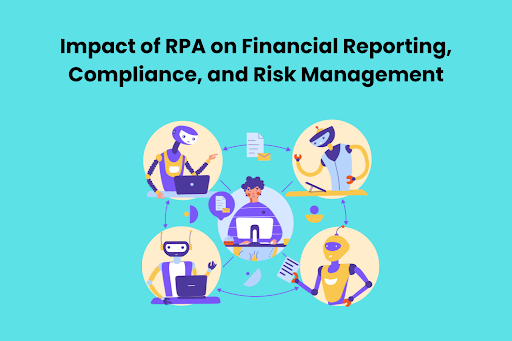In finance, where accuracy, efficiency, and compliance are paramount, the integration of Robotic Process Automation (RPA) has ushered in a transformative era. RPA has emerged as a powerful tool, revolutionizing financial processes and significantly impacting financial reporting, compliance, and risk management. In this blog, we explore the profound influence of RPA in Finance sector, examining how it is reshaping traditional practices. Whether you’re considering a Robotic Process Automation Course or are immersed in the finance domain, understanding the impact of RPA is crucial for staying at the forefront of industry advancements.
Table of Contents
Navigating RPA’s Transformation in Finance
RPA has revolutionised the banking industry by automating rule-based operations using software robots. Robotic process automation (RPA) has been an engine for improving many facets of financial operations, and financial procedures are ideal candidates for automation due to their complexity and data-intensive nature.
Key Impacts of RPA in Finance
Let’s explore the Key Impacts of RPA in Finance:
Enhanced Financial Reporting: Financial reporting is a cornerstone of sound financial management. Financial data collection, processing, and presentation may be greatly improved with robotic process automation (RPA). Financial reports may be produced more quickly and with fewer mistakes when software robots gather data from various sources. In addition to saving time, this efficiency improves the trustworthiness and accuracy of financial reporting.
Automation of Routine Tasks: RPA in finance excels at automating routine, rule-based tasks prevalent in financial processes. This category includes data input, reconciliation, and report writing. Automating these repetitive processes would free financial experts to increase productivity by devoting their time and energy to higher-level, human-required activities, such as strategy and analysis.
Ensuring Regulatory Compliance: Compliance with regulations and standards is a non-negotiable aspect of finance. The automation of procedures with built-in controls is where RPA shines in guaranteeing regulatory compliance. Software robots reduce human mistakes and ensure compliance with ever-changing regulations by following predetermined rules and processes in financial operations. Along with improving compliance, this also creates a record of financial activity that can be audited.
Data Accuracy and Integrity: Inaccurate financial data can have far-reaching consequences. By doing away with human mistakes caused by data input, RPA in the financial sector is great at preserving data integrity and accuracy. Software robots may ensure that financial data is accurate and dependable for decision-making by cross-verifying data across systems, reconciling discrepancies, and flagging possible concerns.
Improved Risk Management: Risk management is inherent in financial operations, and RPA contributes to enhanced risk mitigation. Remote process automation (RPA) is a proactive solution for controlling financial risks since it automates risk assessment procedures, monitors transactions in real-time, and rapidly identifies irregularities. Financial institutions’ entire risk exposure is reduced by using real-time risk monitoring, which guarantees that possible concerns are handled immediately.
Cost Reduction and Operational Efficiency: Cost reduction and operational efficiency are perennial financial goals. This is accomplished via RPA, which automates labour-intensive jobs, speeds up financial processes, and decreases the need for human participation. The result is a more streamlined and effective financial operation with less wasteful use of resources and lower operating expenses.
The Role of Robotic Process Automation Course in Finance
If you want to make the most of robotic process automation (RPA) in the financial sector, enrolling in a course designed specifically for that field is necessary. These classes will teach you about robotic process automation (RPA) in the financial industry, including the latest developments, tools, and best practices. Participants will learn the ins and outs of developing and deploying RPA solutions tailored to financial operations’ specific needs and difficulties. Finance professionals may drive innovation and efficiency within their organisations by strategically using automation, made possible via RPA training.
Conclusion
Robotic process automation (RPA) has irrefutable effects on risk management, compliance, and financial reporting, bringing forth a new age of precision, efficacy, and calculated decisions. It is critical to comprehend the revolutionary potential of RPA whether you are currently well-established in the financial industry or are considering enrolling in a robotic automation process course to enhance your skills in RPA. With RPA, finance professionals can take their positions to the next level, improve operational performance, and confidently traverse the complexity of the current financial environment. RPA is more than simply an automation tool; it’s an innovation catalyst. Companies in the financial industry are leading the charge towards an automation-driven future by embracing RPA, causing a digital revolution that is changing how the industry does business.
